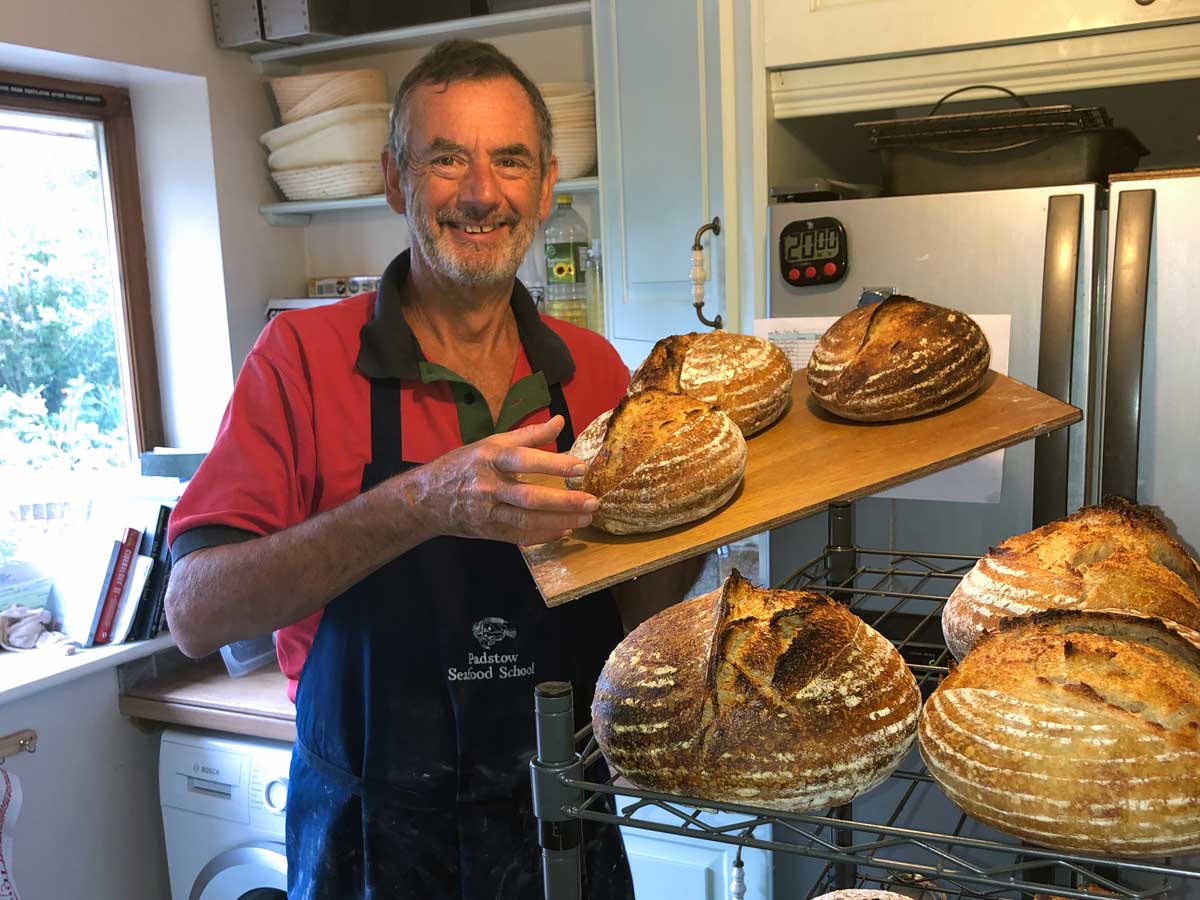Sustain / Real Bread Campaign / Articles
Out of adversity
Lockdown #1 in 2020 saw many people take to baking Real Bread. For Jeremy Miles it was the impetus to take things further.

Sometimes it’s the challenges in life that create opportunities which would otherwise not be realised. For me the creation of Borderlands Bakehouse, my fledgling microbakery in the Meon Valley, Hampshire, was a direct result of the Covid-19 pandemic and ensuing lockdown.
As a freelance training consultant I had been busy working all over the country for the past 10 years. I was also a passionate real food advocate and had been experimenting with both naturally-leavened breads and wild-fermented cider for a number of years. I honed my skills by supplying family and taking the occasional offering to dinner parties but that’s as far as it went.
Local food heroes
Then, in April this year, all my work as a freelancer dried up almost overnight as my clients began to go into survival mode as a result of the unfolding pandemic. We live in a small but thriving community and pretty quickly the pubs and village post offices became lifelines, supplying basic provisions and local produce, as the supermarkets all began to close their doors.
It struck me that, as a small contribution, a delivery of a freshly-baked loaf of Real Bread might lift the spirts of people who were vulnerable and in self-imposed isolation. It also got me thinking that now was the perfect opportunity to try out what it might be like to turn my hobby into something more serious. I put out a post on the community Facebook page saying I was happy to expand my baking output and deliver within our village community.
Unprecedented demand
The response was immediate and over the next few weeks I had upped my output of sourdough and expanded the range to include yeasted breads and buns. However, just as demand was increasing, the supply of ingredients (flour and yeast in particular) all but dried up but, once again, the community rallied round. Through the support and buying network of our pubs and village stores I was able to source just enough to keep me in production until the main suppliers, such as Shipton Mill, were able to catch up on the unprecedented demand from a nation of newly-converted bread makers.
Deprivation and hardship
Whilst it was satisfying to brighten up the lives of many within our villages, we do live in a fairly affluent area and I was acutely aware of the deprivation and real hardship that lockdown was having on other families and the vital, emergency role of foodbanks. I started reaching out to our local centres but not many had the capacity to handle and store fresh produce.
I was put in touch with a school supporting a group of about 100 families in inner Southampton who were willing to take anything I could offer. I increased my output and started baking weekly for the scheme run by Valentine Primary School in Sholing. The feedback I received via the teachers from parents who had not been able to put a loaf of fresh bread on the table for over a year was truly affecting. It is making me realise the positive impact that Real Bead, and its creation, can have on people’s lives.
Looking ahead
Four months in, demand is still rising but I need to rethink my approach in order to avoid the real possibility of burn-out. I’m still baking in the house (I have converted a scullery as a dedicated food prep area but share the oven with the rest of the family) which has its issues! I have the space to expand but my real challenge is order management. I do most of my baking to order and with my current range of breads, buns and pastries, I might be producing small runs of most products most days. This is not only highly inefficient but incredibly time-consuming.
I’m in discussions with the local pubs, cafés and village stores to supply them on a more regular basis, which might provide the impetus to expand my production capacity and move the microbakery out of the house. I’m not yet in a position to take on additional staff, though, and I don’t want to lose the direct contact with my customers as it is their positive feedback that provides the incentive to keep going. Who knows where this journey might take me, but so far, it has been a blast!
Originally published in True Loaf magazine issue 44, October 2020
Published Monday 18 January 2021
Real Bread Campaign: The Real Bread Campaign finds and shares ways to make bread better for us, better for our communities and better for the planet. Whether your interest is local food, community-focussed small enterprises, honest labelling, therapeutic baking, or simply tasty toast, everyone is invited to become a Campaign supporter.

